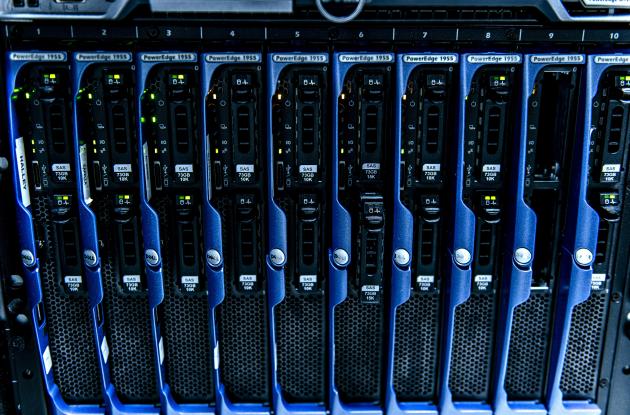Digital preservation
Digital preservation concerns how to secure digital materials in the best possible way for posterity.

Photo: Jørgen Fusgaard
As a national library, Royal Danish Library collects, preserves and makes available the cultural heritage in both physical and digital form. Digital preservation is therefore an area of focus for the library, but also an area that you cannot do without if you want to make digital materials available to users in the long term.
Without digital preservation, there will be no digital material to display. The library collects very large amounts of digital material every single day, that is via legal deposits and donations. In parallel, we are constantly working to improve our digital preservation and monitor the condition of the data we have already collected.
The digital preservation group
In order to ensure that the work concerning digital preservation takes place in a coordinated and strategic way, the library has set up a working group with digital preservation as their primary area of work. The working group helps to decide how to secure our digital cultural heritage for posterity in the best possible way.
This is done, for example, by giving advice when we collect digital material, when we set up preservation systems or when we change the protective security measures for our servers.
Digital preservation is complicated and requires knowledge of a wide range of topics within both technical and organisational aspects such as metadata and formats.
Research and knowledge sharing on digital preservation
We share knowledge nationally and internationally about digital preservation, which enable us to find improved opportunities for collaboration on, for example, bit preservation, as well as to increase our own knowledge and help support our colleagues in the field. Among our colleagues is a senior researcher in digital preservation, which puts the library at the forefront of the international preservation stage - also when international standards on digital preservation need to be revised.
We contribute to increased knowledge sharing within digital preservation by, in collaboration with the National Archives and others, organising the conference iPRES in 2026 - the leading conference in digital preservation - which changes location every year between America, Europe and Asia to ensure participation from all over the world.
The Bit Repository
As part of the work with digital preservation, we have developed our own system for secure bit preservation of data, called the Bit Repository. Digital data is fragile, and unlike losing a corner of a newspaper page, you will not be able to read a digital file that has lost 'a corner', that is, a few of the bits that make up the file.
A bit repository is an archive where we not only store the files in multiple copies together with their metadata, but also continuously monitor that they are still in place and unchanged. If you want technical information about the open source project Bit Repository, please go to bitrepository.org.
Policy and strategy for digital preservation
To be able to preserve the library’s digital cultural heritage in the best possible way we have created a policy, which outlines the overall framework, and a strategy, which explains to us and everybody else how we in practice make sure that we comply with this framework.
Royal Danish Library’s Policy for Digital Preservation

Royal Danish Library’s Strategy for Digital Preservation
